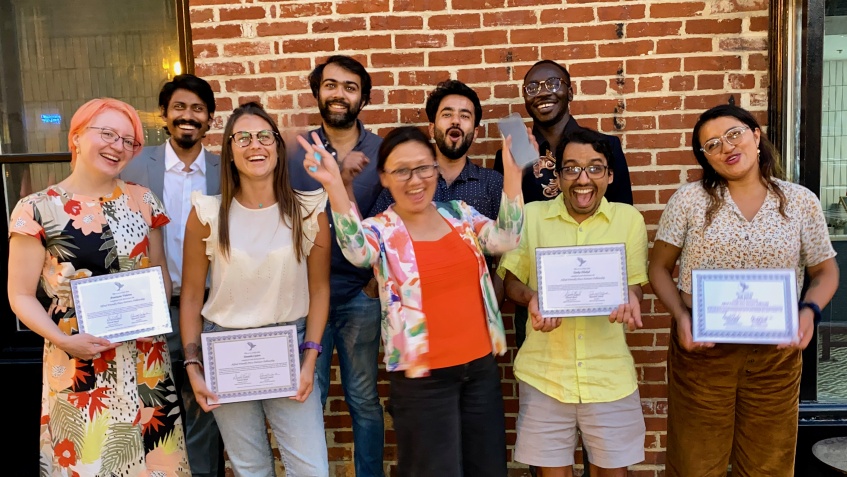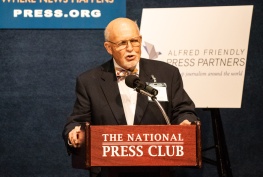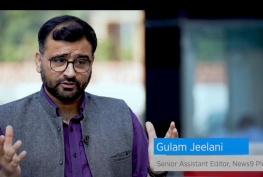It’s typical for Alfred Friendly graduates to attain more substantial roles in journalism after returning home, but the Class of 2022 is in a class of its own.
In December and January, four of the Fellows landed better jobs: Gagandeeop Singh of India joined BBC News, Anastasia Valeeva of Russia started at Newsday, Chencho Dema moved to a bigger newspaper in Bhutan and Daniela Castro was named Latin America editor for the Organized Crime and Corruption Reporting Project.
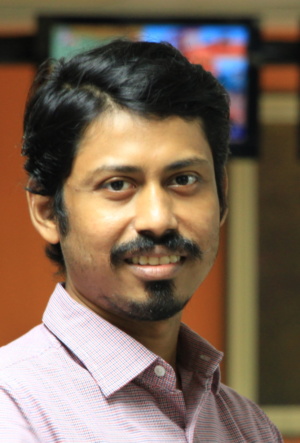
Saurav Rahman
Saurav Rahman published Bangladesh’s first data journalism handbook in his native language three months after his return. In January, he launched a digital media outlet in Bengali — Dismislab.com — aimed at counteracting misinformation and disinformation.
The latter months of ‘22 also marked the start of several other media projects by alumni from previous years, including Isaac Imaka’s Busoga Today in Uganda and Deepak Adhikri’s fact-checking website, NepalCheck.com
“Alfred Friendly fellowships bring fact-based journalism to the world,” said Professor Randall Smith, who is president of Alfred Friendly Press Partners. “As the fellows rise in prominence, they will reach thousands, perhaps millions, of readers and listeners in their home countries.
“Consider that these fellows have at least a 30-year career horizon,” Smith said. “And many are already using the fellowship experience to train their colleagues.”
Rahman called his OCCRP Investigative Reporting Fellowship “the best thing that has happened in my journalism career. It gives me the scope to learn the new set of professional skills and knowledge to address the new journalism challenges. And also how the media can run without fear and pressure.”
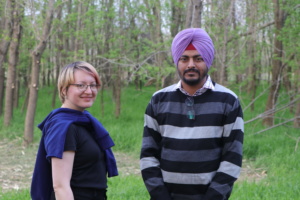
Valeeva and Singh on a group hike in Missouri
Singh, who was working for the Hindustan Times before his move to BBC, said the fellowship training and his work at the Pittsburgh Post-Gazette “completely transformed my journalistic career. I got a chance to learn about American newsroom culture. The fellowship boosted my confidence level, a result of which I can share my stories, ideas or work with more independence.”
Dema, who started work in January for Bhutan’s largest daily newspaper, Kuensel, said of the fellowship: “It gave me confidence that I can do my reporting better and ask tough questions. It also taught me that I can do better in my profession by giving my 100 percent.”
During her fellowship, Valeeva worked on the data team at The Marshall Project, a news organization covering the U.S. criminal justice system. “Working for a U.S. data desk was my dream that came true thanks to the Alfred Friendly Press Partners Fellowship,” Valeeva said. “I learned that coding can change the very journalism we do and make it more replicable, scalable, and innovative.”
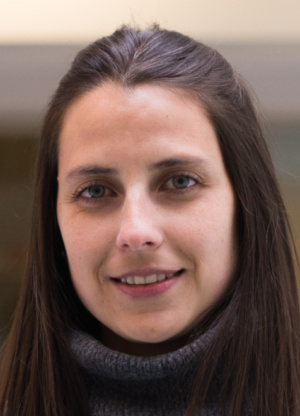
Daniela Castro
Over the summer, the Fellows participated in training sessions organized by Investigative Reporters and Editors for its annual conference in Denver, and networked with some of the country’s top investigative reporters.
“Later on, these contacts helped me very much when I was looking for my next step,” Valeeva said. “And just recently, I landed my dream job position — a data reporter with the investigations team at Newsday,” a daily newspaper on Long Island in the New York City metropolitan area.
Somesh Jha of India started a university master’s program in journalism in Denmark in September shortly after the fellowship program ended.
“The fellowship allowed me to take a breathing space from my nine-year-long career and gave me the reboot that I had been craving,” Jha said. “And to top it all up, I got the golden chance to write front-page stories for the LA Times on the economy.”

